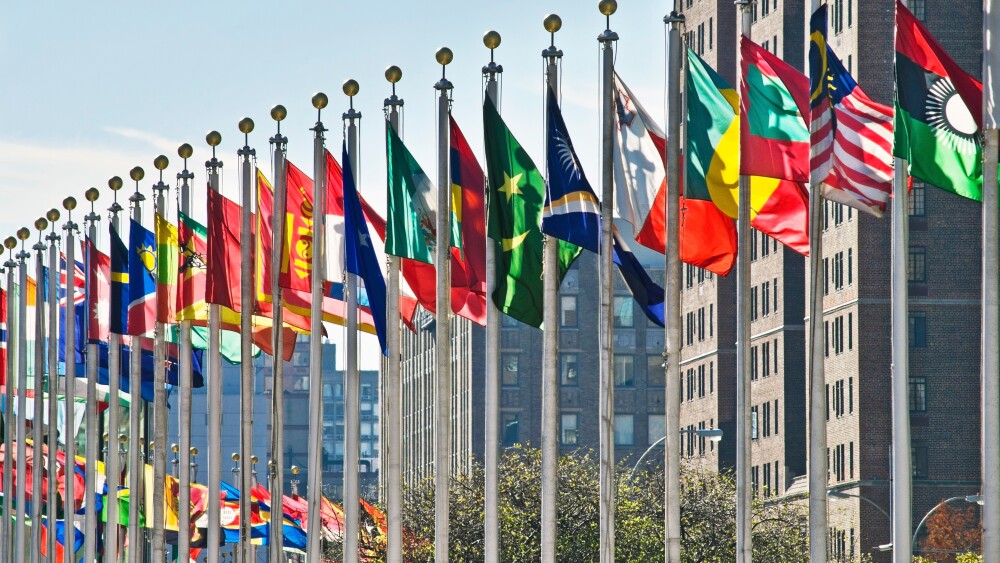As the 80th Session of the United Nations General Assembly approaches, the emergent call to recognize a Palestinian state is high on the agenda. Recently, both France and United Kingdom said they intend to recognize a Palestinian state at the September meeting.
France and the United Kingdom are not the first to call for recognition, though they are the first members of the Group of Seven to do so. Of the 193 United Nations member states, 147 have recognized Palestine as a sovereign state. This suggests the question: If that is the case, why have Palestinians not achieved statehood? The answer is simple. It is because they can’t.
Why have Palestinians not achieved statehood? The answer is simple. It is because they can’t.
If the creation of a Palestinian state were dependent only upon recognition by a majority of the United Nations, Palestinians would have achieved statehood the first time they declared independence on November 15, 1988—supported by 100 U.N. member states. But since that time, no Palestinian U.N. membership application could pass muster in the Security Council, rendering accepted Palestinian statehood both a legal and political impossibility. The French and British know this.
Legally, this is the way it works: First, Palestine applies for U.N. membership, formally stating its acceptance of the obligations under the U.N. Charter, such as Articles 2(4) and 4(1), which prohibit the “threat or use of force against the territorial integrity or political independence” of any U.N. member states, and require that Palestine be “peace-loving” and abide by “the obligations contained in the … Charter,” respectively.
Then, nine of the fifteen members of the Security Council must vote in favor of recommending membership to the General Assembly, on the condition that none of the permanent members (P5) —China, Russia, France, the United Kingdom and the United States—exercises a veto. This is where it stalls. The United States would exercise its veto, just as it did on April 18, 2024, six months after Hamas’s attack on Israel. That U.S. allies choose to ignore those basic tenets of participation in the community of nations, by recognizing a state that brutalized its nearest neighbor, Israel, on October 7, 2023, and continues to hold more than 50 hostages is anathema.
Why do France and Britain make such proclamations if they understand that recognition in practical terms is not enough? While headlines laud their willingness to recognize a Palestinian state to validate the Palestinian cause, the fine print shows their recognition is conditional. French President Emmanuel Macron conditioned his promise to recognize a Palestinian state upon the immediate release of all Israeli hostages, a ceasefire between the factions, and the provision of “massive humanitarian aid to the people of Gaza,” while simultaneously requiring “the demilitarization of Hamas” and the consequent rebuilding of a Palestinian state that fully recognizes Israel. Likewise, British Prime Minister Keir Starmer expressed a commitment to “recognising a Palestinian state as a contribution to a renewed peace process” and advocated a ceasefire, an “immediate release of the hostages,” as well as “the withdrawal of Israeli forces and the removal of Hamas leadership from Gaza as key steps towards a negotiated two-state solution.”
Hamas may want humanitarian aid and Palestinian statehood, but will never agree to demilitarize, recognize Israel, or release the Israeli hostages.
In the April 2024 U.N. application for Palestinian statehood, Paris voted in favor and London abstained. Their support then neither encouraged demilitarization nor the release of the hostages. Requiring conditions now will likely yield little. Hamas may want humanitarian aid and Palestinian statehood, but will never agree to demilitarize, recognize Israel, or release the Israeli hostages—something that would have demonstrated to the international community long ago that they are truly partners for peace. Instead, on August 1, 2025, Hamas released a video of an emaciated hostage, 24-year-old Evyatar David, as he said he was digging his own grave.
Inconsistency also matters. While the United Kingdom made removal of Hamas leadership a condition of recognition, France has offered recognition with the intent that it “will create the conditions necessary for the elimination of Hamas.” Absent unity, France and Britain will take the stage at the United Nations with no plan to help the Palestinians get a state; they will simply virtue signal on a diplomatic platform at the expense of both Israel and the Palestinian people.
The United States now takes the more moral, even if minority, position, as it upholds the responsibility the United Nations requires to deny membership to any aspiring state that violates the U.N. Charter. At a basic level, those obligations are prerequisites for statehood.








